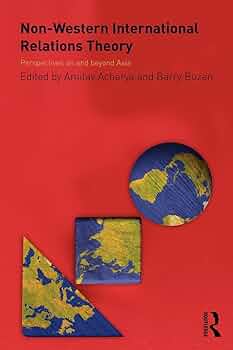
Theory is meant to simplify all the complex realities out there into a patterned and predictable whole. It is also referred to as an “optic.” It is a window through which the world is seen. At Harvard University, if not all the major campuses in the US, theories are also regarded as “lenses.”
Be they “theories,” “optics” or “lenses,” they almost always mean the same thing: a snapshot of the world. Theories must also be capable of being deployed and tested in actual governance. Ontologically, without “theories” no form of governance is possible. This is because, if there are no prior “lenses”or “optics,” to understand the collective behavior of the people , political institutionalization would not be able to take shape. Only sheer enforcement and authoritarianism would exist. Moreover, there would be no “veils of ignorance,” per John Rawl’s theory of justice from which fair and objective decisions could be exercised equally and blindly.
Indeed, the issue is not why are there no “non-Western theories,” but why are Asian optics constantly ignored? After all, Asian civilizations have been around for the last few thousand years. In other words, not unless one subscribes wholeheartedly to the Marxist theory of a despotic government, where Asians are deemed to be under the thumb of their own Kings and Emperorswithout the choice to fight back, the notion of a region devoid of some form of governance does not seem plausible. From strong and structural governance come civilizations. Undoubtedly, Asia has had plenty of them. In other words, Asian “optics,” are aplenty.
For example, China sees the world through four optics: self, family, nation, and Heaven. Before one can be useful to the world, efforts must be focused on cultivating the self, cascading into helping the family, then finally the nation, before returning once again to the world. It is no doubt a Confucian concept, but it is also a concept that is ingrained in Buddhism, Taoism, and other forms of Chinese political thought.
When the “self” lies two stages from the nation, and three stages away from the world, human or behavioral properties become more hidden or shaded. It takes time to peel them layer by layer, like an onion. But the process itself does not deny the existence of optics; only that they are less obvious. So, they do exist, but perhaps in philosophical and theosophical terms.
Yet, contemporary international relations theories have evolved to include systemic anarchy, the organizing principle of international life. By so doing, other forms of “optics” are suppressed, censored, if not, denied. Thus, the self, human nature, the state, and the matrix of the states that make up the world are consigned to ignominy.
In a sense, it is almost as if Western political theories have become meta-theoretical, beyond theories, while the non-Western political theories are still trying to make sense of the constitution of the self (and other corresponding categories thereof). Who is Mao? What drives Deng Xiao Peng to be a pragmatist? Who is Ferdinand Marcos? What makes his family so corrupt?
So, one cannot say why aren’t there any non-Western political theories or nonWestern international theories. To do so would be to pose a question that only exercises the mind of Western academia and Western academics. The right question should be: why are Asian “optics” given more importance as philosophical/theosophical concepts and not empirical ideas? The book does not address this issue head on. They almost immediately jump into the logical and empirical debates.
Still, this book is impressive in its organizational arrangement. Various scholars are summoned to explain the lack of Asian political theories per the Western concept of a theory.
Indeed, should the readers buy a copy of the book? Yes. Absolutely. The writing style is breezy, snappy, and straight to the core. It is not a bore to read it at all. But one must give the benefit of thought toAsian thinkers.. They have thought of how the world should be governed and regulated with an overt focus on the self.. It is from this axiom of the self, that Asian theories are derived and deduced.
